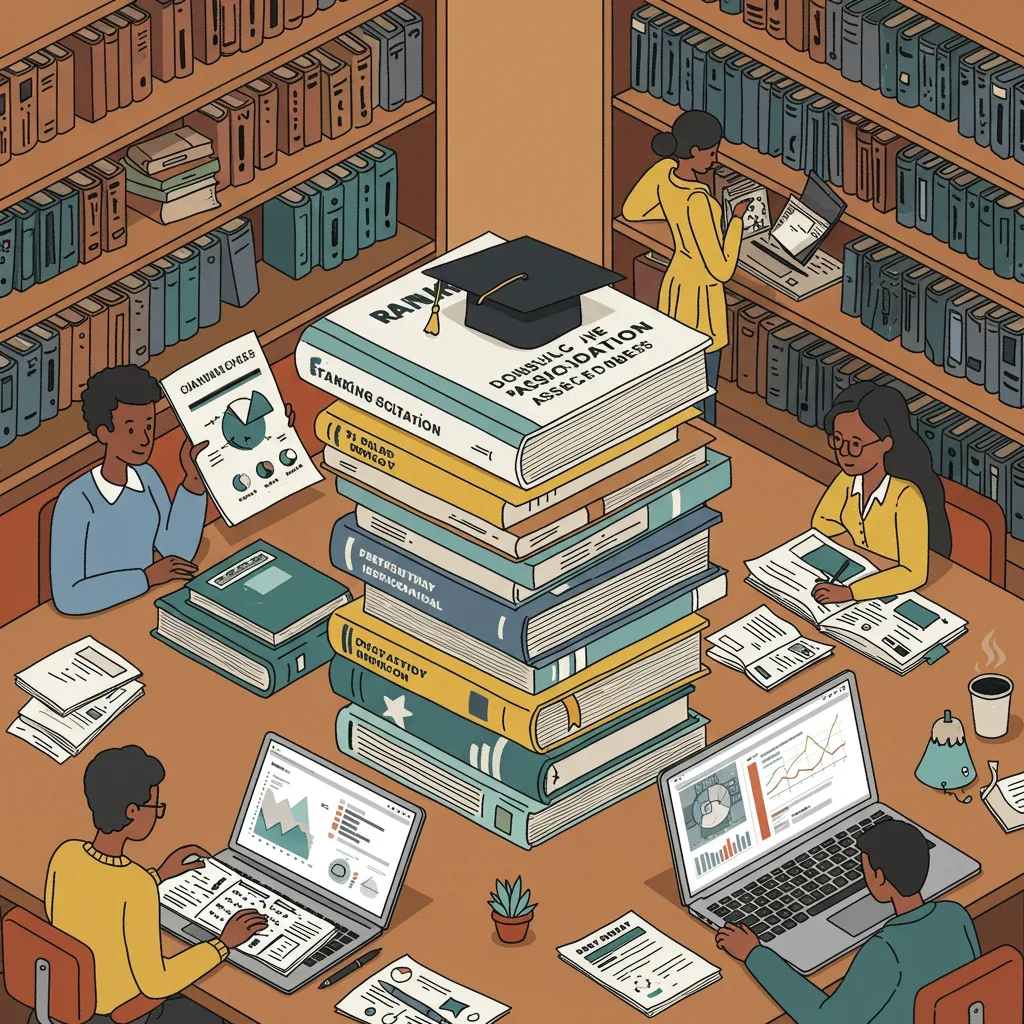Ranking & Accreditation of colleges and Universities plays a significant and pivotal role in the overall development of the Indian higher education system. It enables both the parents and students to find the institutions and programs of their choice. With the advent of globalisation and the inclusion of education as a service sector in General Agreement in Trade Services (GATS), the way has been paved for international collaboration and exchanges in the educational sector including networking and collaborations of research. Institutions from India are too eager to export their education, and thence arises the need to determine the quality of education. To determine the quality, Ranking & Accreditation becomes more the necessary.
Publications, especially high-quality research papers and other scholarly works are crucial for both University Rankings and Accreditation processes as they demonstrate Research Output, Impact, and reflect the overall Academic Quality – which are key factors in evaluating institutions. Many Universities in India are now focused on enhancing their global academic competitiveness. Various strategies are being implemented to restructure, reform and transform Universities aimed at improving the ranking in the global university league. One significant strategy is to encourage academicians to place priority on publishing in high-impact international journals.
The question arises as to how Research and Publications then impact the Ranking & Accreditation. University rankings often consider the number and quality of research publications, including journal articles, conference papers and books as a key indicator of academic strength. The peer review process of high-impact Journals serves as a quality control mechanism. The number of citations a University’s publications receive, as well as the impact factor of the journals or conferences where they are published are strong indicators of the research’s influence and significance. In almost all national and international Ranking & Accreditation platforms, Research Output and Publications are profoundly scrutinized.
Equally important becomes to consider where Research and Publications impact the Ranking & Accreditation. India’s National Institutional Ranking Framework (NIRF), QS World University Rankings and Times Higher Education World University Rankings all incorporate research metrics along with other factors like teaching quality, faculty reputation and internationalization. NIRF, a national framework for ranking universities and colleges in India, considers research, publications and citations as key parameters. NAAC (National Assessment and Accreditation Council), established by the University Grants Commission (UGC), evaluates the performance of universities and colleges, and research and publications are among the key areas assessed.
A quality in research and publication, thus, itself becomes an important indicators of academic excellence. To maintain the ever-increasing spirit of international academic competitiveness, Quality Research and Research Impact’s tactful and planned persuasion becomes more the critical.
How can the Universities and Institutions achieve excellence in Research – The first step would be to hire dedicated faculties in specific roles of research, who have the proven dedication and flair to advance the spirit of education by research and innovation. Mentorship of young researchers by accomplished peers in the education sector can and will play a significant role in influencing Quality Research. The Indian Universities should pursue domestic and international collaborations rigorously to improve the quality of research and joint publications.
How can the Government promote excellence in Research – The present ranking system has a metric of number of publications per faculty, but it should also include a metric focusing on the quality of research publications assessed on the basis of cumulative impact factor and publications in high-impact factor journals of international repute. Both the NIRF and NAAC have removed the metric of research funding received from private/industry corporations, in spite of the fact that private corporations provide large amounts of funds to the Universities for research. It should be tactfully revived in the NAAC accreditation as well as in NIRF ranking systems. Another predominant factor plaguing the Indian Research Sector is the fact that Research Funding available to all the Higher Educational Institutions (HEI’s) is not balanced. Government funded institutions grow and sustain on tax-payers’ money, while the private ones do not have any such support. To keep the playing ground level is an essential pre-requisite here. The present allocation of Research Grants to Public Universities is higher, however these needs to be equally distributed to Private/Deemed to be Universities as well. Lastly, all agencies involved in Ranking & Accreditation should use a common source to determine research impact, output and factor. It has been observed that certain ranking agencies prioritize the Journals indexed in UGC Care List, whereas certain agencies only consider Scopus and Web of Science. To maintain impartiality and fairness to all disciplines, specialties, inter-specialities and cross-specialities in the higher education sector, there is an urgent need to rationalize and nationalize the same.
Research and Publications forms a major activity in a University and it won’t be mistermed to boast that Research and Publications tremendously boosts a University’s credibility and facilitates credit transfer both nationally and internationally. Conceptualizing a good research environment with research support and incentives are more the essential before desiring a good ranking & accreditation, aligning with international standards as per the Washington Accord.
Dr Shadab Ahmed is an Oral & Maxillofacial Surgeon, and has been involved in quality assurance programs of several institutions.























